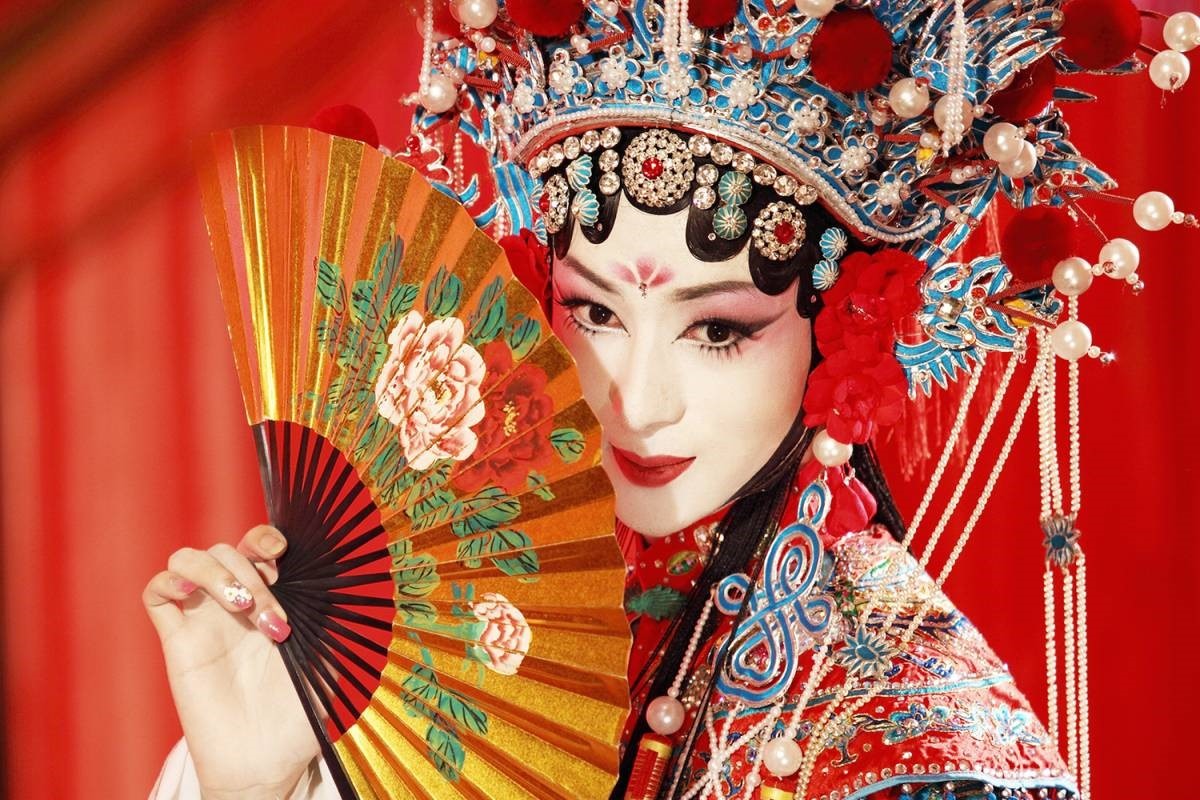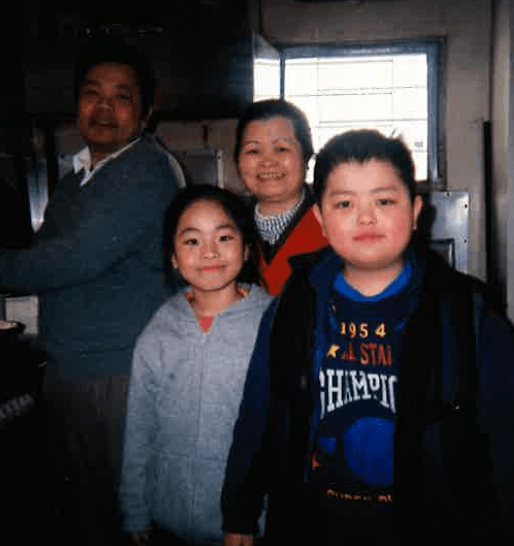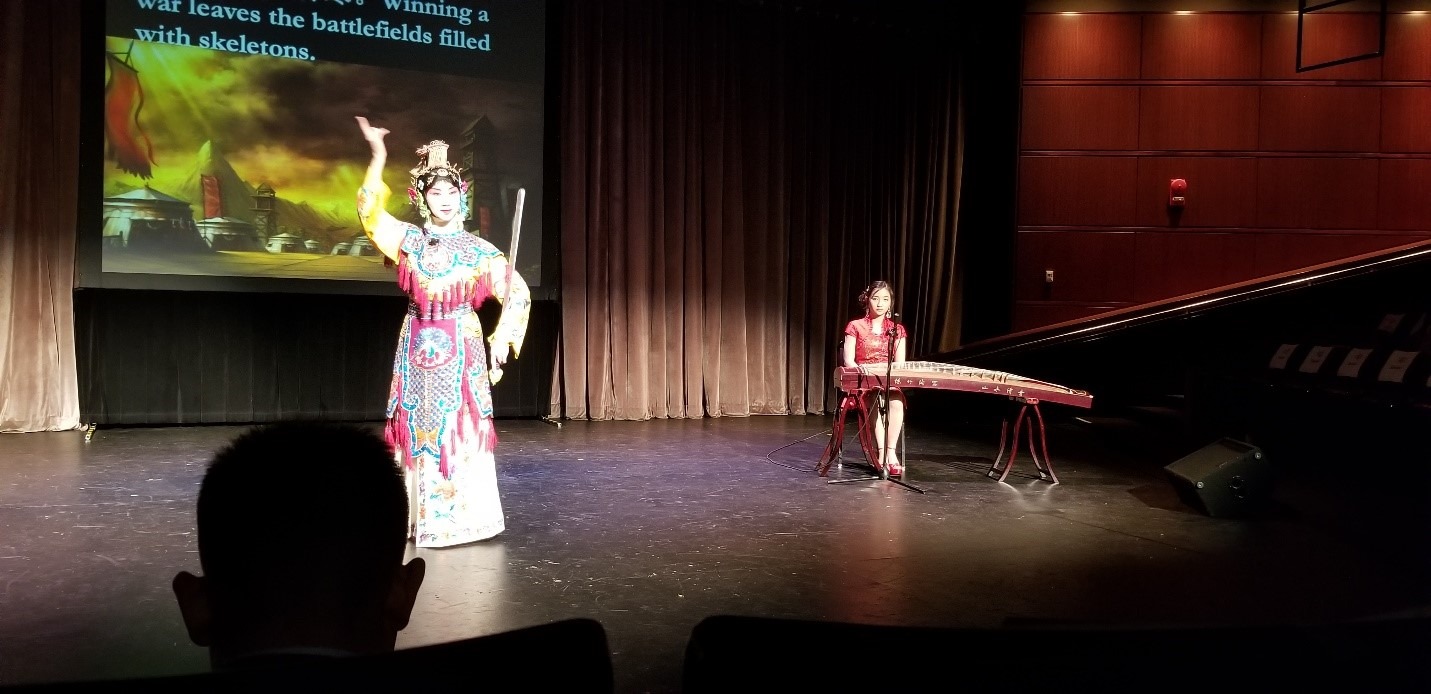Throughout the month of May, Asian/Pacific American Heritage Month is celebrated across the country to pay tribute to the generations of Asian and Pacific Islanders in America who have enriched our history and are instrumental in our future success. Read below as Anna Wu, our current 6-month co-op student from Drexel University, shares her love for the traditional Chinese performing art of the Beijing opera and how learning about it from her father has shaped her Chinese-American identity.
Growing up, my dad would always play VHS tapes of Beijing opera on repeat. The high-pitched singing and bright robes never failed to catch my attention as I walked throughout the house. For younger me, it was an ancient and strange art form. For my dad, it was a captivating and entertaining performance. Although it wasn’t my cup of tea, it was a great way for me to bond with my dad and will always hold a special place in my heart. Each time my dad couldn’t relate to the American side of my identity, there was an opportunity to share a clip from a Beijing opera performance. He would explain to me what was happening on the screen and describe the reasons behind their movements. It would become both a bonding and educational experience for me from a young age.
Beijing opera, also known as Peking opera, is one of the many types of Chinese opera. Originally from Beijing during the Qing Dynasty, Beijing opera is considered China’s national opera and a cultural treasure. The traditional art form was created when the “Four Great Anhui Troupes” brought Anhui opera, now known as Hui opera, to Beijing in 1790 in celebration of the Qianlong Emperor’s birthday. Anhui opera gradually absorbed other acting styles and dialects until it became what we currently know as Beijing opera. By the end of the 19th century, Beijing opera was one of the most famous operas in China. Over Beijing Opera’s 200-year-long history, its popularity has spread to other countries, such as America, Taiwan, and Japan.

A highly respected art, Beijing opera skillfully incorporates aspects of Chinese culture such as stories, paintings, fashion, mannerisms, and martial arts into a musical theatre performance. The bands featured in these performances are usually an orchestra and percussion band. However, Beijing opera is also valued for its simplicity, so the absence of a band and props is not uncommon. The four main roles of the opera are the leading male role, sheng, the female role, dan, the bold or ruthless male, jing, and the clownish male, chou. Each performer paints their face or wears a mask with elaborate designs. They also wear colorful and decorative costumes to help distinguish the characters and their ranks. The performers’ movements and expressions throughout the opera are also exaggerated to place emphasis on grace and beauty. Historically, men would play all the roles, even the female dan role. However, women have recently been welcomed onto the stage.


Myself then, as a child with my family and now, in my co-op internship at the Kimmel Center.
Now, as a second-year college student and artist, I’ve come to truly appreciate Beijing opera. From its extravagantly designed costumes to unique music, Beijing opera allows me to embrace my Chinese ethnicity and experience traditional Chinese culture. It has also helped me bridge the gap I occasionally encounter between my American and Chinese backgrounds. During a trip to the 2019 Global China Connection Summit in Washington D.C. earlier this year, I was fortunate enough to see a performance of the Beijing opera in person and it’s a show I will never forget.

A look at the smaller performance that I saw during my time in DC.
If you’d like to attend a Beijing opera performance yourself or become involved in one, Philadelphia has its own organization! The Philadelphia Chinese Opera Society (PCOS) is a non-profit performing arts organization dedicated to the studying, teaching, and performing of Beijing opera. Under the leadership of Shuyuan Li, the PCOS regularly hold performances around the Philadelphia region. You can read more at philapcos.org/ Also to learn more abut Asian/Pacific American Heritage Month and events taking place across the county, visit asianpacificheritage.gov/